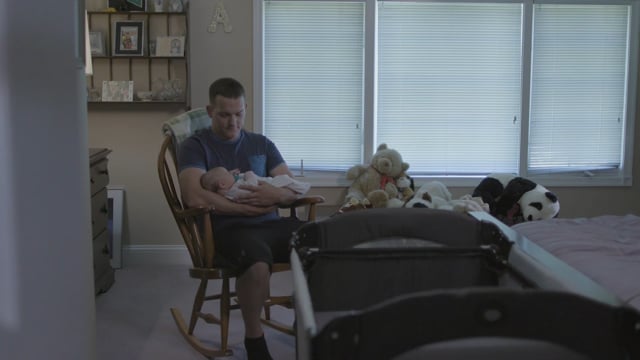- Home
- Humana Medicaid
- Kentucky Medicaid
- Medicaid extras
- Health and wellness
- Home
- Parents Home
- Allergy Center
- Asthma Center
- Cancer Center
- Diabetes Center
- A to Z Dictionary
- Emotions & Behavior
- First Aid & Safety
- Food Allergy Center
- General Health
- Growth & Development
- Flu Center
- Heart Health
- Homework Help Center
- Infections
- Diseases & Conditions
- Nutrition & Fitness Center
- Play & Learn Center
- School & Family Life
- Pregnancy Center
- Newborn Center
- Q&A
- Recipes
- Sports Medicine Center
- Doctors & Hospitals
- Videos
- Para Padres
- Home
- Kids Home
- Asthma Center
- Cancer Center
- Movies & More
- Diabetes Center
- Getting Help
- Feelings
- Puberty & Growing Up
- Health Problems of Grown-Ups
- Health Problems
- Homework Center
- How the Body Works
- Illnesses & Injuries
- Nutrition & Fitness Center
- Recipes & Cooking
- Staying Healthy
- Stay Safe Center
- Relax & Unwind Center
- Q&A
- Heart Center
- Videos
- Staying Safe
- Kids' Medical Dictionary
- Para Niños
- Home
- Teens Home
- Asthma Center
- Be Your Best Self Center
- Cancer Center
- Diabetes Center
- Diseases & Conditions
- Drugs & Alcohol
- Expert Answers (Q&A)
- Flu Center
- Homework Help Center
- Infections
- Managing Your Medical Care
- Managing Your Weight
- Nutrition & Fitness Center
- Recipes
- Safety & First Aid
- School & Work
- Sexual Health
- Sports Center
- Stress & Coping Center
- Videos
- Your Body
- Your Mind
- Para Adolescentes
Naps
Why Are Naps Important?
Sleep is important for a child's growth, development, and overall health. For infants and young children, total sleep time includes sleep at night and naps during the day.
How much sleep kids need varies by age. While every child is different, experts recommend:
- Infants (0–3 months): 14–17 hours. Infants tend to sleep on and off around the clock, waking every couple of hours to eat.
- Infants (4–12 months): 12–16 hours. Around 4 months of age, sleep rhythms start to become more set. Most babies are sleeping longer at night and have 2–3 daytime naps.
- Toddlers (1–2 years): 11–14 hours. Young toddlers may still take two naps, but most drop down to one nap a day by 18 months.
- Preschool (3–5 years): 10–13 hours. Many preschoolers get enough sleep at night and give up their afternoon nap during these years.
- School age (6–12 years): 9–12 hours. Kids over 6 should get all their sleep at night. If your older child regularly naps, set a bedtime that allows for the recommended amount of sleep.
How Can I Tell if My Child Needs to Nap?
Kids may need to nap if they don’t get enough sleep at night. Most parents underestimate the amount of sleep kids need, so keep in mind recommended sleep times when planning nap times and bedtimes. Sleepy kids may rub their eyes and look tired, or they may act out or have other behavior problems.
Ask yourself:
- Does my child act sleepy during the day?
- Is my child cranky, whiny, or moody, especially later in the day?
- Is it a battle to get my child out of bed in the morning?
- Is my child inattentive, impatient, hyperactive, or aggressive?
- Does my child have trouble focusing or following directions?
If you answered yes to any of these questions, consider changing your child's bedtime or nap schedule.
How Can I Help My Child Nap?
The key can be as simple as setting up a consistent nap routine early on and sticking to it. Soft music, dim lights, and a quiet story can help kids settle into their naps.
Put infants down for a nap while they’re sleepy but not yet asleep. This helps kids learn how to fall asleep by themselves — a skill that gets even more important as they get older.
For toddlers and preschoolers, set regular naptimes that are not too close to bedtime. Sticking to a naptime schedule can be a challenge. Many do still love their nap, but others don't want to miss a thing and fight going to sleep. If your child gives up daytime naps, consider setting an earlier bedtime.
What if My Child Won’t Nap?
Don't let naptime become a battle — you can't force your child to sleep. If your child won’t nap, set aside some quiet time.
During quiet time, let your child read books or play quietly in their room. Parents are often surprised by how quickly quiet time can lead to sleep time. Even if kids don’t sleep, they still get some much-needed rest.
It can take time to find a sleep routine that works. Talk to your doctor if you have questions or concerns about your child's sleep.

Safe Sleep for Babies
Keeping your baby safe is your first priority. Learn how to safely put your baby down for a nap, or at bedtime, to help prevent sudden infant death syndrome (SIDS).

Helping Your Baby Sleep
Many sleep-deprived parents ask how to get their babies to be better sleepers. Learn what you can do to encourage sleep, what's normal in the first year, and when your little one might sleep through the night.

Helping Your Toddler Sleep
While nighttime feedings may be over, you might still be struggling to get your toddler to sleep. Learn how to help your toddler sleep well and instill good sleep habits early.

© 1995- The Nemours Foundation. KidsHealth® is a registered trademark of The Nemours Foundation. All rights reserved.
Images sourced by The Nemours Foundation and Getty Images.